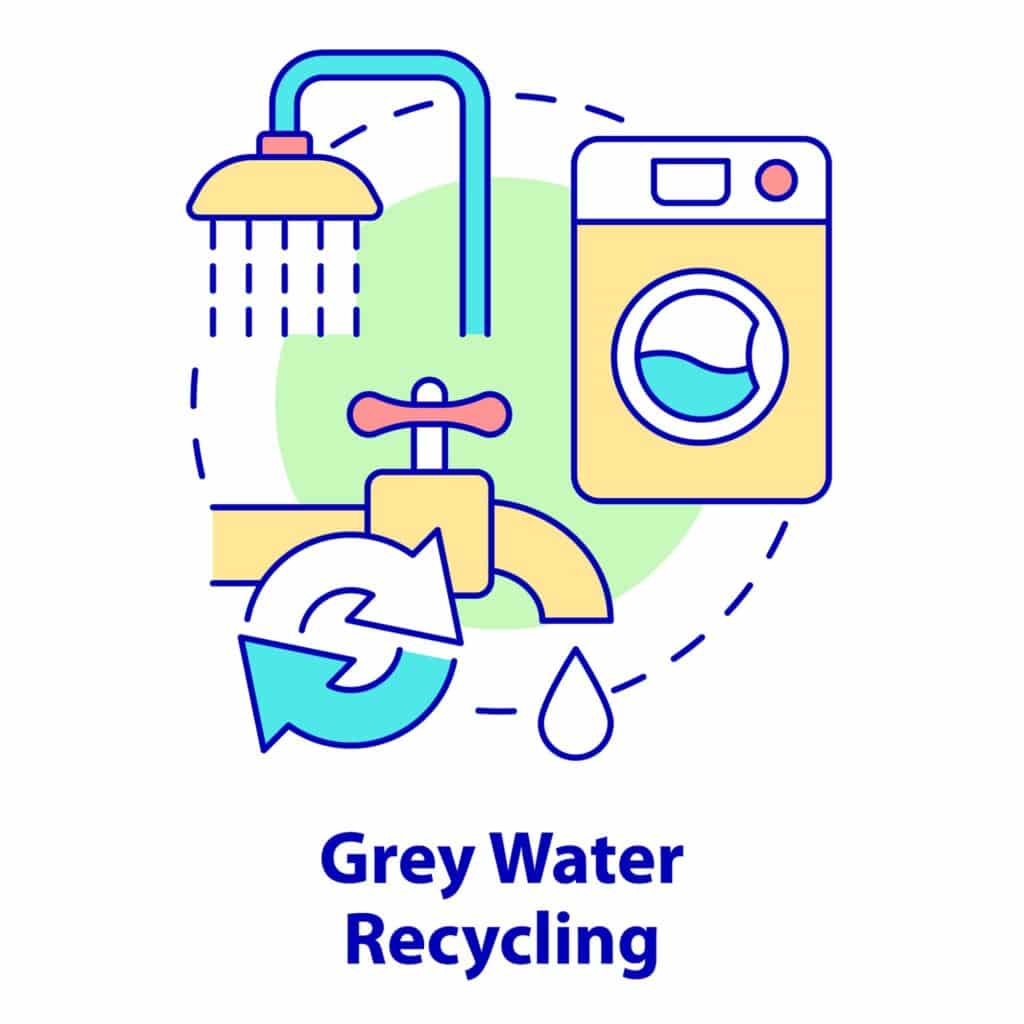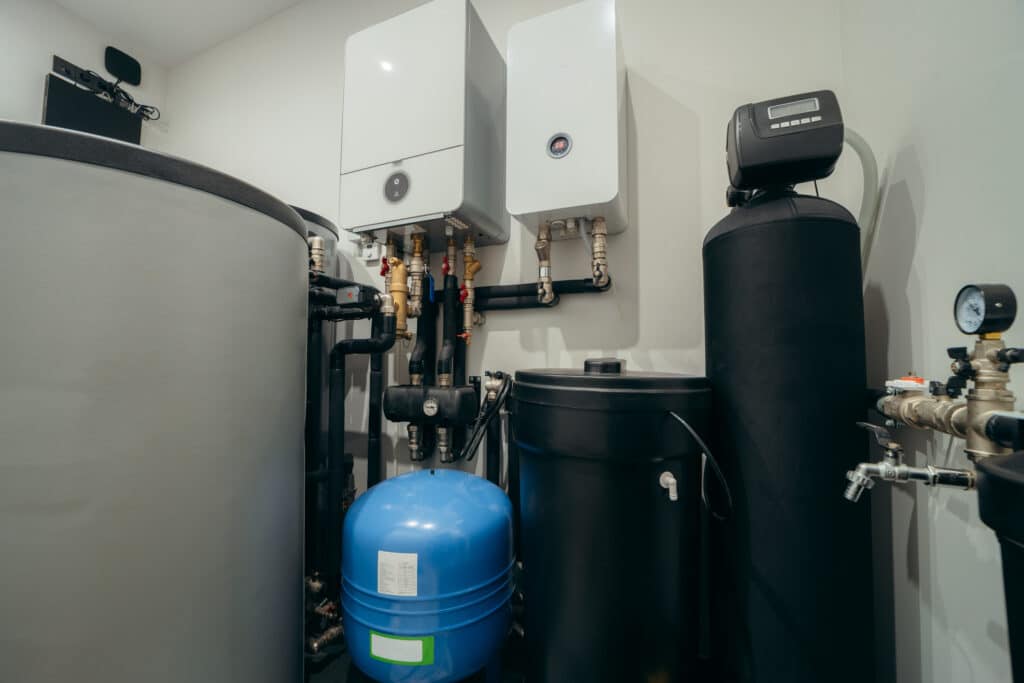
The Essential Benefits of Greywater Recycling Systems
In the heart of Myrtle Beach, SC, Greywater Recycling Systems are becoming a central focus as homeowners increasingly turn their attention towards sustainable living solutions. Among these, greywater recycling systems stand out as a beacon of environmental responsibility and economic wisdom. These systems, designed to reuse water from showers, sinks, and laundry, are gaining traction for their significant benefits. They not only conserve water but also reduce the demand on municipal systems, making them an attractive option for eco-conscious residents.
Conway, SC, is also witnessing a growing interest in these innovative systems. By adopting greywater recycling, homeowners in the area are contributing to a larger movement towards water conservation. This approach not only supports the local ecosystem but also offers a practical solution to managing household water usage more efficiently. It’s a win-win situation, where both the environment and homeowners reap the benefits.
The advantages of greywater recycling systems extend beyond just water conservation. Economically, they present an opportunity for significant savings on water bills. By reusing water for landscaping and other non-potable purposes, households can drastically reduce their fresh water consumption. This reduction in demand translates into lower monthly expenses, making it an appealing option for budget-conscious families.
Understanding the importance of these systems is crucial for anyone considering making their home more sustainable. Greywater recycling systems embody the intersection of environmental stewardship and economic savvy. As more people in Myrtle Beach, SC, and Conway, SC, explore these options, the positive impact on both the community and the planet continues to grow. This introduction to the essential benefits of greywater recycling systems aims to shed light on why they are becoming an indispensable part of modern homes.
Understanding Greywater and Its Sources
Understanding greywater and its sources is key to appreciating the full value of greywater recycling systems. Essentially, greywater is wastewater from non-toilet plumbing systems. This includes water from showers, bathroom sinks, and washing machines. It’s important to note that this water, although not suitable for drinking, holds immense potential for reuse in residential settings.
In homes across Myrtle Beach, SC, greywater makes up a significant portion of overall water waste. By redirecting this water from sewers to garden beds or for flushing toilets, homeowners can play a pivotal role in water conservation. This shift not only benefits the environment but also aligns with the broader goals of sustainable living. It’s a practical step towards reducing the strain on municipal water treatment facilities.
Moreover, the process of installing greywater recycling systems is straightforward, with minimal disruption to existing plumbing. This ease of integration makes it an attractive option for many homeowners. In Conway, SC, for example, residents are quickly adopting these systems to leverage their benefits. The move towards greywater recycling is growing, reflecting a community-wide commitment to sustainability.
Finally, the economic advantages of using greywater recycling systems cannot be overstated. Families see a noticeable reduction in their water bills, thanks to the decreased need for fresh water. This saving is a compelling reason for many to consider the switch. Additionally, the long-term environmental benefits contribute to a healthier planet for future generations, making greywater recycling systems a wise investment for eco-conscious households.

The Environmental Impact of Greywater Recycling Systems
Greywater recycling systems significantly lessen the environmental footprint of homes in Myrtle Beach, SC. By reusing water, these systems decrease the volume of wastewater entering sewage treatment facilities. This reduction eases the burden on these plants, allowing for more efficient operation and less energy consumption. Consequently, the overall energy demand of the community drops, contributing to a decrease in carbon emissions.
In Conway, SC, adopting greywater recycling systems has led to a noticeable improvement in local water conservation efforts. These systems help in maintaining groundwater levels by reducing the need for fresh water for non-potable uses. As a result, there’s less strain on local aquifers, which are crucial for the ecosystem’s health and for preventing land subsidence. This careful management of water resources is vital for sustaining the environment.
Furthermore, greywater recycling systems play a crucial role in reducing pollutants entering our waterways. By diverting greywater from sewers, these systems minimize the risk of overflows during heavy rains, which can lead to untreated wastewater spilling into rivers and oceans. This action directly benefits marine life and preserves water quality, ensuring safer beaches and recreational waters for everyone.
Lastly, the implementation of greywater recycling systems supports the growth of green spaces in urban areas. Reused water provides a sustainable irrigation source, encouraging homeowners to cultivate gardens that contribute to biodiversity and air quality improvement. These green spaces act as natural coolants, reducing urban heat islands and creating more pleasant living environments. Through these systems, communities become more resilient and environmentally friendly, showcasing a commitment to preserving our planet for future generations.
Economic Benefits of Installing Greywater Recycling Systems
Installing greywater recycling systems in homes across Myrtle Beach, SC, brings significant economic advantages to homeowners. By reusing water from showers, sinks, and laundry, families can see a noticeable decrease in their monthly water bills. This reduction in fresh water usage translates into direct savings, making the investment in these systems financially beneficial in the long run. Furthermore, the decreased demand for municipal water can lead to lower utility costs community-wide, showcasing the economic impact of these systems.
In Conway, SC, the adoption of greywater recycling systems contributes to increased property values. Homes equipped with these sustainable features often attract eco-conscious buyers, willing to pay a premium for environmentally friendly living spaces. This trend not only benefits individual homeowners but also strengthens the local real estate market. As more properties integrate greywater recycling, the area becomes more attractive to prospective buyers looking for green homes.
The cost-effectiveness of installing greywater recycling systems is also evident in the reduced need for expensive water treatment infrastructure. By lessening the load on municipal water treatment plants, communities can defer or avoid the high costs associated with expanding these facilities. This saving can be redirected towards other community projects, enhancing the quality of life for residents. It’s a smart allocation of resources, proving that sustainability can lead to economic efficiency.
Lastly, greywater recycling systems offer long-term financial benefits by fostering a culture of water conservation. As residents become more mindful of their water usage, the collective savings can be substantial. This shift in behavior not only helps in managing household expenses but also promotes a sustainable lifestyle. Through these systems, communities like Myrtle Beach, SC, and Conway, SC, are setting a precedent for responsible water management, paving the way for a more sustainable future.
How Greywater Recycling Systems Work
Understanding how greywater recycling systems operate illuminates their role in sustainable living. Essentially, these systems capture water from showers, sinks, and laundry before it reaches the sewer. Through a filtration process, the water is cleaned and redirected for use in irrigation or toilet flushing. This cycle significantly reduces the need for fresh water, showcasing the system’s efficiency.
In Myrtle Beach, SC, homeowners appreciate the simplicity behind the technology. After installation, greywater recycling systems work automatically, seamlessly integrating into daily life. The systems are designed to be low-maintenance, ensuring that families can contribute to water conservation without added hassle. This ease of use encourages wider adoption, making sustainable living more accessible.
Conway, SC, benefits from the adaptability of these systems to various home layouts. Whether for new constructions or existing homes, greywater recycling systems can be tailored to meet specific needs. This flexibility ensures that more households can participate in reducing their environmental impact. As a result, the community moves closer to achieving its sustainability goals.
Finally, the long-term reliability of greywater recycling systems offers peace of mind. Built to last, these systems provide a sustainable solution for years to come. Homeowners in both Myrtle Beach, SC, and Conway, SC, find confidence in the durability and effectiveness of their systems. This reliability strengthens the case for greywater recycling as a key component of eco-friendly living.
Key Components of Greywater Recycling Systems
Greywater recycling systems consist of several crucial components that ensure their efficiency and reliability. At the heart of these systems lies the filtration unit, which purifies water from showers, sinks, and laundry, making it suitable for reuse. This process involves removing particles and impurities, ensuring the water is clean for non-potable purposes. In Myrtle Beach, SC, homeowners find this feature particularly beneficial, as it maximizes the use of every drop of water.
Another key component is the collection tank, where greywater is stored temporarily before being redirected. This tank is designed to hold water safely, preventing contamination and odor build-up. Its capacity varies, allowing for customization based on household size and water usage needs. In Conway, SC, the adaptability of these tanks to different home environments underscores the system’s versatility.
Pumping mechanisms play a vital role in transporting filtered water from the collection tank to its intended use areas, such as gardens or toilets. These pumps are engineered for efficiency, operating only when needed to minimize energy consumption. Their automated nature simplifies the recycling process, making it effortless for homeowners to contribute to water conservation.
Lastly, control systems ensure the smooth operation of greywater recycling systems by monitoring water flow and quality. These smart technologies alert homeowners to any issues, guaranteeing the system’s performance and longevity. This feature is particularly appreciated in both Myrtle Beach, SC, and Conway, SC, where residents value sustainability and innovation. Together, these components form the backbone of greywater recycling systems, promoting eco-friendly living and water conservation.
Installation Process for Greywater Recycling Systems
When considering the installation of greywater recycling systems, homeowners in Myrtle Beach, SC, find the process straightforward and efficient. Initially, a professional assessment determines the home’s compatibility and the best system type for its needs. This step ensures that the setup aligns with the household’s water usage patterns and space availability. It’s a critical phase that paves the way for a smooth installation journey.
Next, experts install the necessary plumbing to divert greywater from sources like showers, sinks, and laundry machines to the recycling system. This involves integrating new pipes and possibly adjusting existing ones to channel water effectively. The precision of this work guarantees that greywater is safely and efficiently redirected, minimizing any disruption to the home’s daily routines. In Conway, SC, skilled technicians handle this phase with care, ensuring a seamless transition to greywater recycling.
Following the plumbing setup, the installation of the main components, including the filtration unit and collection tank, takes place. These are strategically positioned to optimize the system’s performance and accessibility for maintenance. The careful placement of these components is crucial for maximizing the efficiency of the greywater recycling system. Homeowners appreciate the attention to detail during this stage, as it contributes to the system’s long-term reliability.
Finally, the system is tested to confirm its proper operation, including the filtration quality and the efficient distribution of treated water. This testing phase is essential for ensuring that the greywater recycling system meets all safety and performance standards. Once approved, homeowners are briefed on how to use and maintain their new system, marking the completion of the installation process. This comprehensive approach ensures that residents of Myrtle Beach, SC, and Conway, SC, can confidently embrace greywater recycling, contributing to environmental sustainability and enjoying economic benefits.
Maintenance Tips for Your Greywater Recycling System
Maintaining greywater recycling systems ensures they function efficiently and last longer. Regularly checking the filtration unit for clogs or wear can prevent system failures. Homeowners in Myrtle Beach, SC, should clean or replace filters as needed. This simple step keeps the water clean and the system running smoothly.
The collection tank also requires attention to avoid issues such as odor or overflow. Inspecting it every few months helps identify potential problems early. Residents in Conway, SC, find that keeping the area around the tank clear of debris extends its lifespan. This proactive approach saves time and money on repairs.
Monitoring the pump and control systems is crucial for the system’s overall performance. Listening for unusual noises or checking for error messages can alert homeowners to issues. Promptly addressing these signs ensures the system operates efficiently. It also prevents minor problems from becoming major ones.
Finally, homeowners should schedule an annual professional inspection of their greywater recycling systems. This comprehensive check-up can catch issues that might be overlooked. It’s a smart investment in the system’s longevity and effectiveness. Following these maintenance tips helps keep the system in top condition, offering lasting environmental and economic benefits.

Frequently Asked Questions
What is greywater?
Greywater is the wastewater from sinks, showers, and washing machines in your home. It doesn’t include toilet waste, making it less polluted. Recycling this water through greywater recycling systems can save resources. This practice benefits both the environment and your utility bills.
How do Greywater Recycling Systems work?
Greywater recycling systems capture water from your home’s sinks, showers, and laundry. They then filter and treat this water to remove impurities. Next, the cleaned water gets reused for tasks like toilet flushing and garden watering. This process cuts down on water waste and saves money on water bills.
Can greywater be used for irrigation?
Yes, greywater can be used for irrigation, providing a smart way to water your garden. By using greywater recycling systems, homeowners can reduce their fresh water use. This method is great for plants, as it supplies them with essential water without tapping into clean water resources. It’s an efficient, eco-friendly solution for keeping gardens green and lush.
What are the costs of Greywater Recycling Systems?
The cost of greywater recycling systems varies, depending on the size and complexity of the setup. Generally, homeowners find the initial investment pays off through lower water bills over time. Installing these systems can also increase property value by making homes more eco-friendly. Remember, the benefits of saving water and reducing utility costs often outweigh the initial expenses.
Are there legal restrictions on using greywater?
Yes, some areas have legal rules about using greywater. Before setting up greywater recycling systems, it’s wise to check local regulations. These laws ensure that greywater use is safe and doesn’t harm the environment. By following these guidelines, homeowners can enjoy the benefits of greywater recycling without any issues.

 843.213.6611
843.213.6611